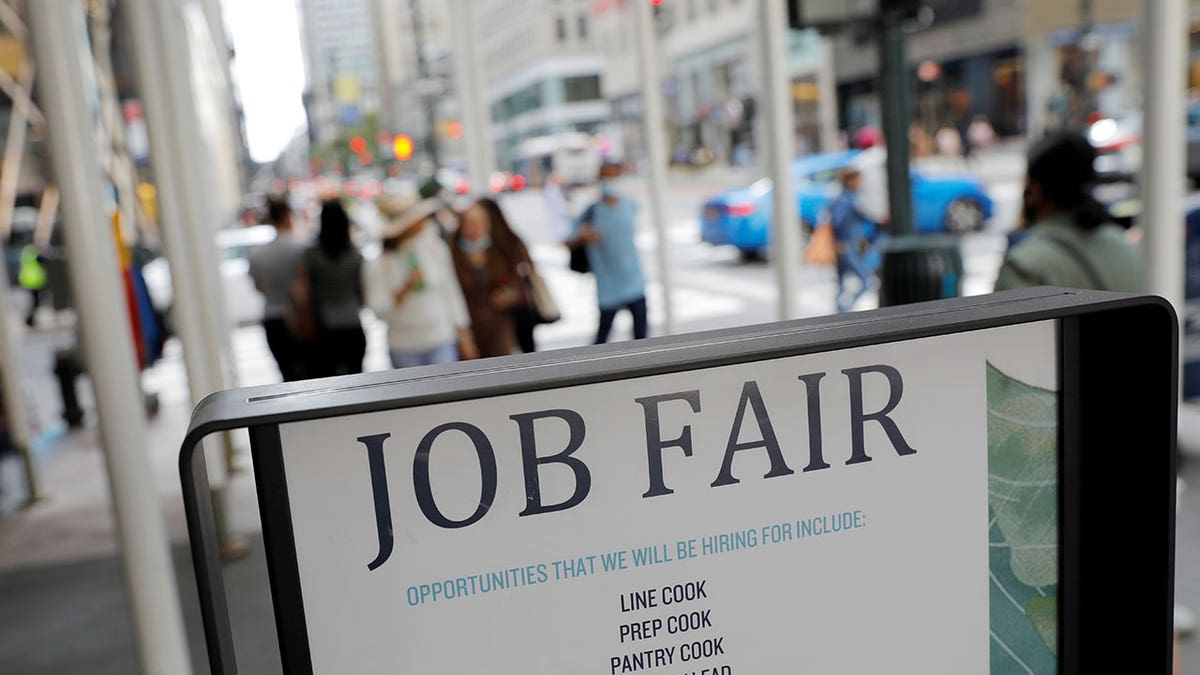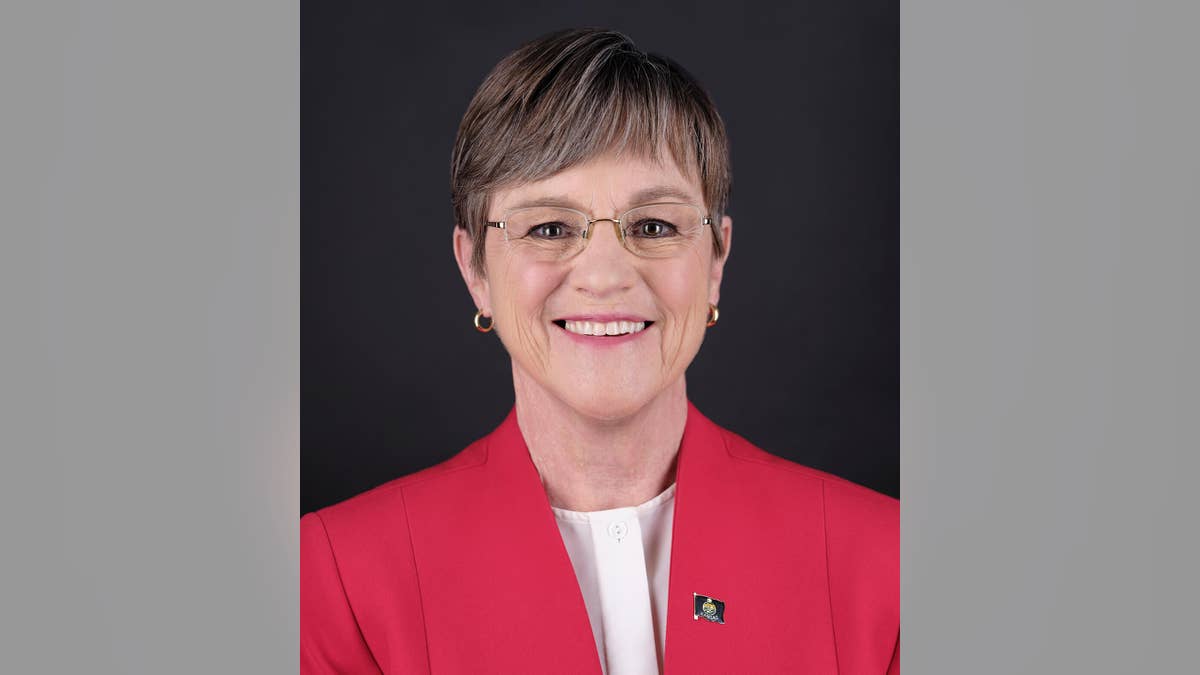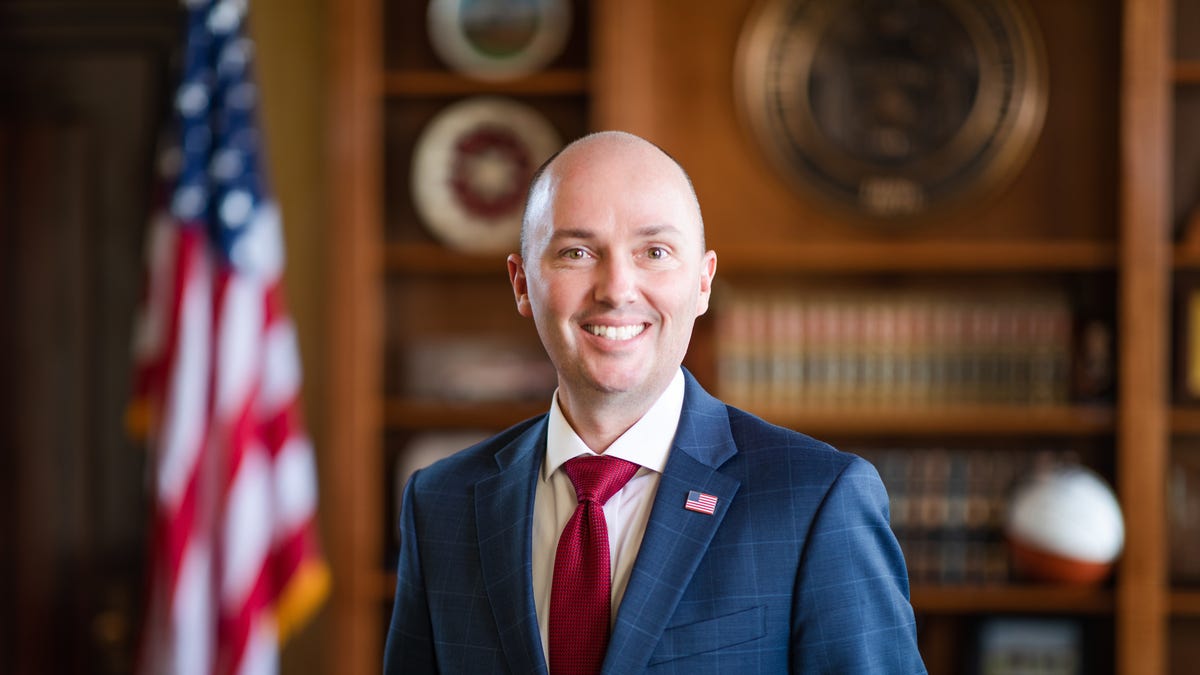Unemployment drops as inflation rises
FOX Business correspondent Edward Lawrence looks at the latest jobs report for October on ‘Special Report.'
All around us, there are signs of a growing mismatch between worker skills and what employers are seeking in an economy reshaped by the pandemic.
A November survey by the National Federation of Independent Business showed that 29% of owners reported labor quality as their top business problem, a 48-year-high.
JOBLESS CLAIMS REMAIN UNCHANGED AT 205,000, NEAR HALF-CENTURY LOW
Earlier in the year, the U.S. Chamber of Commerce observed that in industries like education and health services as well as professional and business services, there were fewer job seekers than open jobs. In August, 4.3 million Americans, or nearly 3% of the U.S. workforce, quit their jobs, and economists expect the numbers to rise again after the new year.

Signage for a job fair is seen on Fifth Avenue after the release of the jobs report in Manhattan, New York City, on Sept. 3, 2021. (REUTERS/Andrew Kelly/File Photo)
The resulting labor shortages have real consequences for the economy, such as supply chain delays, product shortages and service disruptions.
As governors, we are taking steps to equip workers across the skills spectrum with opportunities both now and in the future.
FED'S INFLATION GAUGE HITS 39-YEAR HIGH AS PRICES SOAR HIGHER
A big component of our comprehensive strategy is to strengthen our programs in work-based learning. The apprenticeship programs that helped train generations of workers in skilled trades are only part of this holistic approach connecting classroom education with on-the-job experience.
As the nature of work and careers changes, we as governors have embraced work-based learning as a tool to equip young people in Utah and Kansas for jobs in a world that increasingly demands technical skills in addition to soft skills best learned through real on-the-job experiences.
Utah served as a mentor state in the National Governors Association (NGA)’s Policy Academy on Scaling Work-based Learning, and Kansas was one of 13 learning lab states in the third phase of the academy. The academy provided a forum for us to develop policy innovations and best practices that can be replicated across the country, adapted to the unique circumstances of each state or territory.

Democrat Laura Kelly is the governor of Kansas. (State of Kansas)
Utah has created industry-led pathway programs in every corner of the state, matching student talent with industries seeking to build a pipeline of workers such as the life sciences, helicopter design and engineering, and cloud-based computing.
In an example of a partnership with industry, Amazon is working with Utah to train the state’s educators to teach a curriculum developed by the tech giant to prepare students for jobs in the cloud.
The Siemens Foundation, inspired by its corporate partner that utilizes apprenticeships and other on-the-job learning to build its workforce, funded the NGA policy academy to help states, students and employers experience the value of work-based learning first-hand.
In Utah, we also recently launched the lieutenant governor’s Return to Work initiative for people re-entering the workforce after an absence to build their resume and gain current and relevant experience.

Republican Spencer Cox is the governor of Utah. (State of Utah)
This effort is part of our larger Learn and Work in Utah education initiative to provide tuition assistance for more than 100 short-term postsecondary programs for the unemployed or underemployed.
In Kansas, we are laser-focused on making innovative, forward-thinking changes to our systems that will benefit generations of students and businesses – including more work-based learning opportunities.
CLICK HERE TO GET THE OPINION NEWSLETTER
We created the Advantage Kansas Coordinating Council, a statewide forum for crafting policy and legislative proposals aimed at workforce development.
Kansas is also conducting a cross-agency work-based learning regional pilot that will align programs and scale high quality work-based learning across Kansas.
We are already seeing successes with programs to give people practical, on-the-job experience as part of their education.
Like in southwestern Kansas, where the Hugoton Unified School District 210 purchased three augmented reality units to facilitate 3D human body experiences for students in health science.
Like other regional pilot programs, Hugoton represents a collaboration among the local school district, state education and workforce agencies, local community colleges and the business community.
CLICK HERE TO GET THE FOX NEWS APP
These kinds of partnerships are vital to the success of work-based learning programs in Utah, Kansas and around the country.
It’s good government in action – public and private partners coming together to solve problems and create opportunity.
Republican Spencer Cox is the governor of Utah.
Both authors participate and lead in the National Governors Association (NGA)’s Policy Academy on Scaling Work-based Learning.

